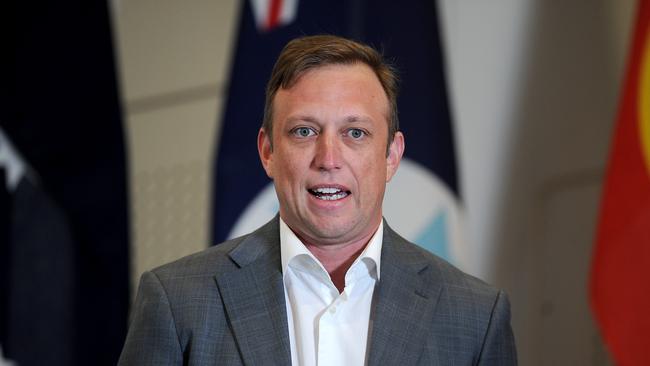VAD medics face $220k telehealth fine
Federal government rejects premier’s request to exempt Qld doctors from prosecution for giving advice on voluntary assisted dying.

The Morrison Government has rejected Annastacia Palaszczuk’s request to exempt Queensland doctors from federal prosecution for giving advice on voluntary assisted dying to terminally ill patients over the phone or internet.
In a blow to Queensland’s proposed VAD laws, doctors will now remain at risk of being hauled before the courts for “inciting or counselling” suicide across a carriage service under federal law.
The Queensland premier last month wrote to Prime Minister Scott Morrison requesting he urgently amend the Commonwealth Criminal Code to ensure regional Queenslanders could access counselling about assisted dying by telehealth.
Ms Palaszczuk, along with other state leaders, has sought reassurance from the Commonwealth Director of Public Prosecutions and the Australian government that health practitioners will not face criminal action, but no such assurance has been provided.
The CDPP would not comment and a spokesman for Attorney-General Michaelia Cash said it was the responsibility of states to ensure their laws were compatible with the Commonwealth’s.
“The government has no plans to amend the suicide-related material offences in the Commonwealth Criminal Code,” her spokesman said.
National laws passed in 2005 prevent doctors from encouraging suicide by phone, email or videoconference, punishable by a fine of $222,000.
While advocates say voluntary assisted dying is not a form of suicide, they warn doctors are still at risk of prosecution.
Queensland, the most decentralised state in Australia, is set to pass right to die legislation in September and its government has conceded the scheme may only be available to people in larger cities until doctors are better protected.
Legislation, which closely mirrored laws already passed in four other states, would require two doctors to sign off before the dose was administered, Deputy Premier Steven Miles said.
“Only a small number of doctors are likely to do the training and get accredited, so even if you are in a bigger town with a decent number of doctors, the chances of having two in your town are pretty slim,” he told a Queensland Media Club lunch. “So telehealth will be really important.”
As the Commonwealth law is yet to be tested in court, Mr Miles said there was debate among lawyers about whether it could be applied to assisted dying.
In an attempt to circumvent national law, Queensland legislation will stipulate the person’s underlying health condition be listed as their official cause of death, rather than VAD or suicide.
“The law will apply the same thing for the purposes of life insurance, for example,” Mr Miles said. “The federal law says that you can’t use a carriage service to assist suicide. We are very clear that this isn’t suicide.”
Mr Miles said until doctors were given greater certainty about whether they would face prosecution “there will be parts of Queensland that miss out”.
Victoria in 2019, in the first scheme enacted in Australia, warned doctors not to discuss euthanasia over the phone or internet, which has been a barrier for regional patients or those too ill to attend an appointment in person.
A Victorian government spokeswoman said the clash of state and Commonwealth law on the issue had “been exacerbated by restrictions put in place to stop the spread of coronavirus”.
“We will continue to call on the Commonwealth to reconsider making an exemption from the Criminal Code to allow Victorians ... to be able to have important conversations about voluntary assisted dying over the phone,” she said.
Western Australia’s right to die scheme, which begins on July 1, requires discussions on administering the lethal dose to be had in person. But a spokeswoman for Health Minister Roger Cook said other discussions could be made by telehealth.
Australian Medical Association vice president Chris Moy said the Commonwealth should amend the Code to shield doctors providing access to VAD in states where it is legal.




To join the conversation, please log in. Don't have an account? Register
Join the conversation, you are commenting as Logout